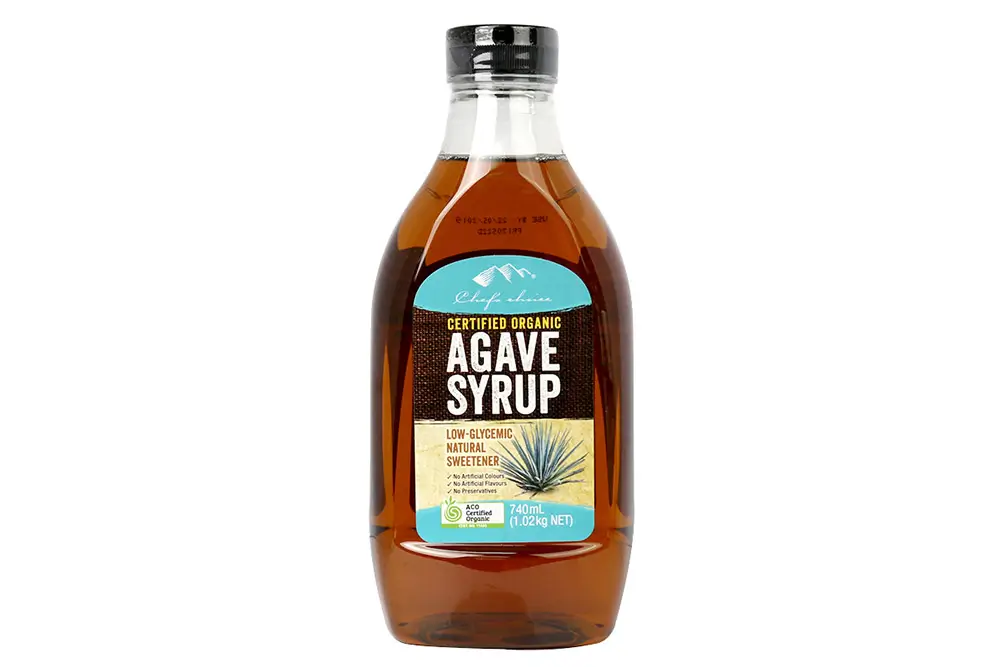Can Dogs Eat Agave Syrup?

As a dedicated dog owner and an experienced dog blogger, I’ve navigated through numerous queries concerning what is safe and what’s not for our furry friends. One question that frequently pops
up is about the safety of agave syrup for dogs. Agave syrup, a sweetener derived from the agave plant, is popular among humans for its natural origins and purported health benefits. It’s often seen as a healthier alternative to refined sugar and artificial sweeteners. However, when it comes to our canine companions, the rules of nutrition differ significantly. In this blog post, we’ll dive deep into the world of agave syrup and its impact on dogs, exploring both the potential benefits and risks, comparing it to other syrups, and ultimately providing a well-rounded perspective to help you make informed decisions about your dog’s diet.
Is Agave Syrup Good for Dogs?
When considering agave syrup for dogs, it’s essential to understand its composition and how it compares to other sweeteners. Agave syrup is known for its high fructose content, which is a type of sugar that differs from the glucose found in most canine-designed foods. From a nutritional standpoint, dogs do not require added sugars in their diet. Their energy needs are adequately met with proteins and fats, which are crucial for their growth and well-being.
However, the moderate use of agave syrup could be seen as a less harmful option compared to other sweeteners due to its lower glycemic index. This means it causes a slower rise in blood sugar levels compared to regular sugar. For dogs with certain dietary restrictions or sensitivities, a minimal amount of agave syrup might not pose immediate health risks, provided it’s used sparingly. It’s also worth noting that agave syrup contains some minerals like calcium, potassium, and magnesium, although in quantities too small to make a significant difference in a dog’s diet.
Is Agave Syrup Bad for Dogs?
Despite the potential for a less pronounced impact on blood sugar levels, agave syrup’s high fructose content raises concerns. Fructose is metabolized differently than glucose, primarily in the liver, and excessive intake can lead to health issues such as obesity and diabetes, conditions that are increasingly prevalent in pets. Furthermore, dogs do not have a nutritional requirement for added sugars, making any benefits of agave syrup negligible compared to its risks.

The consumption of sweeteners, including agave syrup, can also encourage a preference for sweet tastes, potentially leading dogs to shun their nutritionally balanced meals in favor of sweeter, less healthy options. This can result in nutritional imbalances and weight management issues. Additionally, the syrup’s sticky consistency could lead to dental problems, such as cavities and periodontal disease, if dental hygiene is not adequately maintained.
Are Other Syrups Safe For Dogs?
Exploring the safety of other syrups for dogs unveils a spectrum of suitability and risk. For instance, pure maple syrup, in tiny amounts, might be less harmful due to its natural sourcing and the presence of antioxidants, though it’s still high in sugar and should be used sparingly. On the other hand, syrups containing xylitol, a sugar alcohol used in many sugar-free products, are highly toxic to dogs and can lead to liver failure and hypoglycemia.
Honey is another natural sweetener that, in very small quantities, can be safe for dogs and even offer some health benefits, such as antioxidants and anti-inflammatory properties. However, like agave syrup, it’s high in sugars and should not become a regular part of a dog’s diet. When considering any syrup or sweetener, it’s crucial to prioritize those without artificial ingredients or toxic substances, always erring on the side of caution and moderation.
Final Thoughts
In conclusion, while agave syrup might seem like a healthier alternative to traditional sweeteners for humans, its benefits do not translate well to canine nutrition. The potential risks associated with its high fructose content, including obesity, diabetes, and dental issues, outweigh the minimal nutritional benefits it may offer. As dog owners, our priority should always be to provide our pets with a balanced diet that meets their specific nutritional needs, avoiding unnecessary additives like sweeteners.
When it comes to treating your dog, there are countless safe and healthy options that can satisfy their taste buds without compromising their health. Fresh fruits (in moderation), vegetables, and specially formulated dog treats are excellent alternatives. Remember, the key to a healthy diet for your dog lies in balance and moderation, and understanding the impact of what we choose to feed them is paramount.
Navigating your dog’s nutritional needs can be challenging, but armed with the right information, you can make choices that promote their health and happiness. As always, when in doubt, consult with a veterinarian to tailor dietary choices to your dog’s specific health profile and nutritional needs. Let’s keep our furry friends healthy, happy, and safe, one meal at a time.










